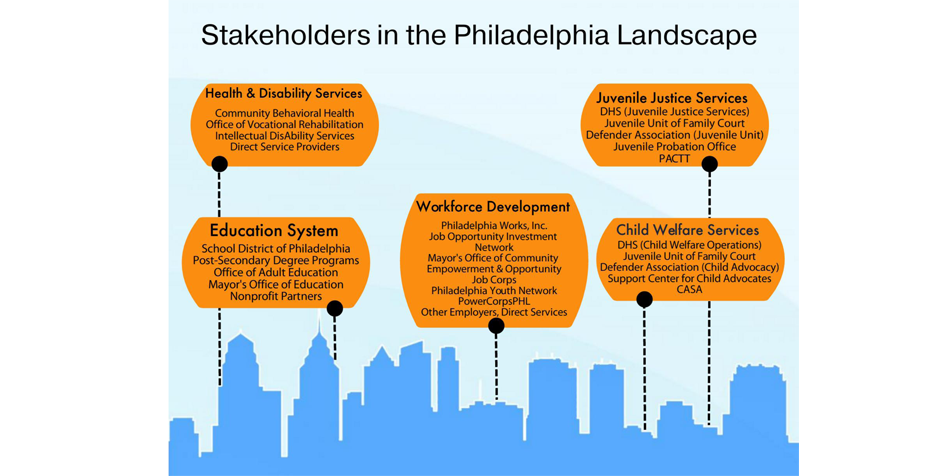Improving Access To Career Pathways For Philadelphia’s Child Welfare And Juvenile Justice System Involved Youth

Early work experiences and other forms of career exposure remain elusive for many youth, including youth in the child welfare and juvenile justice systems. Nationally, approximately 3 million youth are neither in school nor working. And while the overall labor market has improved, not all young people have benefitted. The unemployment rate for Black youth last summer was 20.6%, more than double the rate for White youth.
These disparities have led to an increased focus on engaging “disconnected youth” (commonly defined as young people aged 16-24 who are neither working nor in school) and supporting them on the path to a stable career. Many teens and young adults in foster care or the juvenile justice system fall in this category and could benefit from a range of career pathways programs. Yet these youth often face unique barriers to access. For instance, system-involved youth may not have copies of their important documents, such as a social security card or state ID, which can cause them to miss application deadlines or get passed over for employment opportunities.
In a new report funded by the Lenfest Foundation, Juvenile Law Center takes a focused look at the barriers to career pathways that system-involved youth encounter. Based on an in-depth needs assessment of the Philadelphia community, the report offers five strategies to improve access to career-focused programs and early work experiences for youth in the child welfare or juvenile justice system:
- Improve Access to Vital Documents and Records
- Offer Meaningful Opportunities for Career and Technical Education (CTE)
- Better Connect System-Involved Youth to Disability Services, Including Job-Related Services
- Expand Work Experiences for Youth in Institutional Placements
- Reduce the Collateral Consequences of Juvenile and Criminal Records